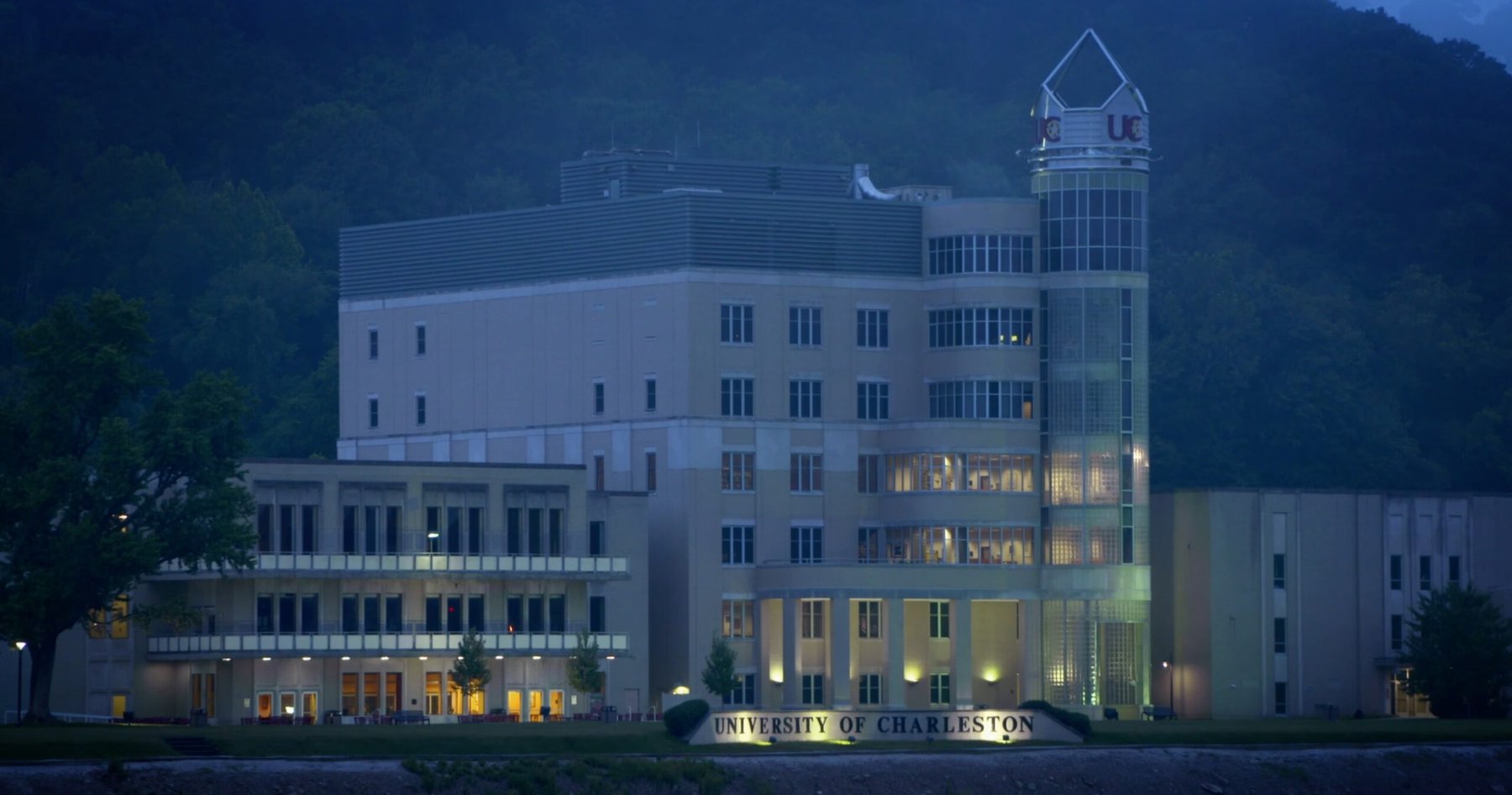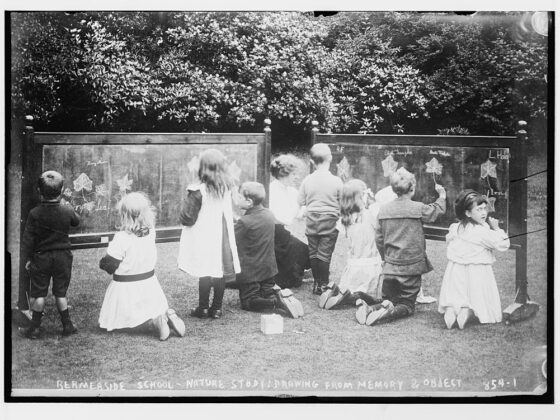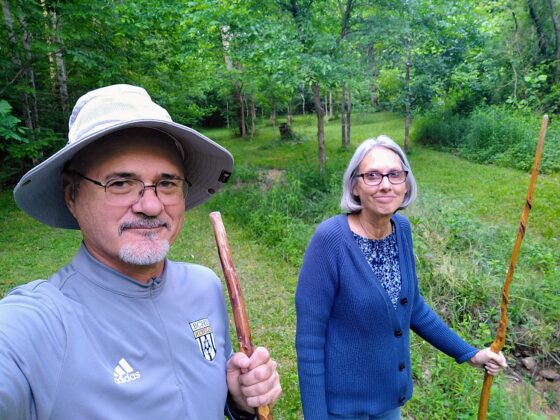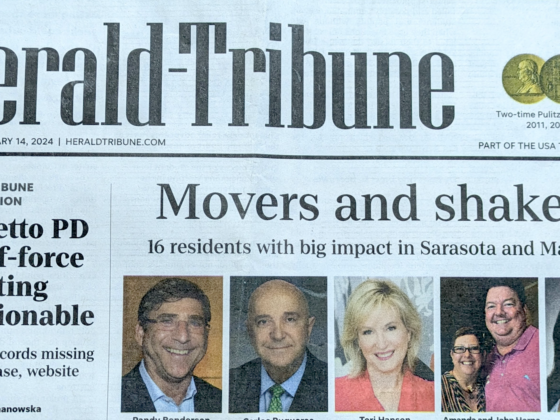Mississippi: Chuck Yarborough Named Emerson Collective Fellow
Chuck Yarborough, part of six-generation Mississippi family, is a history teacher at the Mississippi School for Mathematics and Science (MSMS), in Columbus. At MSMS he has pioneered an innovative, immersive approach to reckoning with the region’s history. The MSMS productions include increasingly popular annual re-enactments of Columbus-area history from the Reconstruction era onward, each May on Emancipation Day.
Yarborough and his students were featured in the HBO film Our Towns, and over the years we have chronicled their growing effect in Mississippi and beyond. You can find a collection of the articles here. Last year Ben Speggen did a post on the live-streamed May 8 presentation. And Chuck Yarborough himself wrote for us about the idea behind his students’ presentations.
This week Yarborough received a major new honor, and an impetus to further achievements. The Emerson Collective, founded by Laurene Powell Jobs, selected Yarborough as one of its Fellows. The award announcement said:
In Mississippi and across the country, public conversation is shaped by common, yet incomplete, narratives. For example, in Lowndes County, where the Mississippi School for Mathematics and Science is located, only five out of 33 state historic markers commemorate or mention African American contributions, despite the fact that African Americans had been the majority of the population for over a century, until 1930. There is also little acknowledgement of immigrants, women, or Indigenous people.
As an Emerson Collective Fellow, Chuck will expand his existing projects into a history curriculum called the “MoreStory Initiative.” The initiative will take what students discover and use it to expand public knowledge of local historical figures and events. It will release performance products developed from student research, and create new local historic markers. At the same time, it will develop a model that can be replicated in other communities across the country.
Sincere congratulations to Chuck, his colleagues, his students, and to all the other communities and schools that will have a change to benefit from the example they have set.
California: College Service Goes Big
Through the past three years we have reported on the ambitions and innovations of California’s state-led network of volunteer programs. In 2020 we had a report on “A Climate Corps of California Volunteers,” and last year on California’s ambitions revive the best parts of the FDR-era CCC and hosted a conversation in partnership with the Jefferson Educational Society that in part explores the work of Climate Corps here.
This month California Volunteers, the cabinet-level agency in California led by Josh Fryday, announced a major new program to encourage public service by California’s young people, and to make higher education more affordable for them. The program is called CaliforniansForAll College Corps. (It’s spelled that way; CaliforniansForAll is the umbrella term for many volunteer programs.)
The details are in this press release, and the program’s essence is to create a structure for meaningful service, and to offer financial benefits to those who participate. As the announcement put it:
#CaliforniansForAll College Corps will provide up to 6,500 college students over two academic years with service opportunities in critical issue areas such as climate action, K-12 education, and COVID-19 recovery. Students who complete a year of service will receive $10,000 while gaining valuable experience serving in their communities. This program will unite young Californians of all backgrounds in service, and, for the first time, specifically creates state-funded opportunities for AB 540 eligible Dreamers to serve their communities.
45 total campuses representing University of California, California State University, community college and private university systems have been selected as program participants via a competitive grant application process.
College is too expensive; students who completed it are too saddled with debt; too many public needs are unmet. This initiative in California won’t solve any one of those problems, but it is an attempt to address all of them.
Also last week, Cal Volunteers announced another major initiative, to create service-related jobs for young people through a CaliforniansForAll Youth Job Corps. The details are here. Innovation anywhere deserves attention everywhere. These can be important steps, in the nation’s most populous state.
West Virginia: Day of Enlightened Living
In the Our Towns film, Judge Joanna Tabit, of the juvenile drug court in Charleston, West Virginia was a major figure, and the city of Charleston was the setting for some of the film’s most gripping scenes. In November 2021, Deb Fallows and Ben Speggen caught up with Judge Tabit — along with Tracy Taft of Ajo, Arizona and Lora Whelan of Eastport, Maine — for a panel discussion at Rural Assembly‘s Rural Women Everywhere digital conference available here.
This month, as part of observances for Martin Luther King Jr.’s birthday, the University of Charleston had day-long events for them “Enlightened Living Day.” (The university’s site says:”The Mission of the University of Charleston is to educate each student for a life of productive work, enlightened living and community involvement.”)

We had the good fortune to join students from the college, in an online session moderated by Judge Tabit. It’s now online here. Whenever you’re tempted to think “Kids these days!” please listen to the extremely thoughtful questions that the students at the University of Charleston — and the way that two of their fellow students, Lauren Hines and Taylor Green, managed the interaction.
We look forward to seeing them in person, but we hope you’ll enjoy this virtual session.




